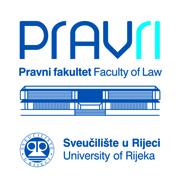MOST IMPORTANT NOVELTIES IN BANKRUPTCY ACT OF 2015
DOI:
https://doi.org/10.30925/zpfsr.38.1.5Keywords:
pre-bankruptcy proceedings; imminent insolvency; a creditor with right to separate satisfaction (a secured creditor); bankruptcy plan; international bankruptcy; Bankruptcy Act of 2015Abstract
This paper gives the analysis of the most important novelties that the new
Bankruptcy Act of 2015 brought into Croatian bankruptcy law. The author points at
many contradictory, imprecise and defective provisions of the new Bankruptcy Act,
especially provisions regarding a pre-bankruptcy reason (ground), pre-bankruptcy
proceedings, advance payment for the costs of bankruptcy proceedings, appointment
of bankruptcy administrators (bankruptcy trustees), action to contest legal transactions
of the debtor, liquidation of objects on which the right for separate satisfaction exists,
bankruptcy plan, group of companies (connected companies), bankruptcy proceedings
against liquidation estate and international bankruptcy. Due to numerousness of
the defective legal solutions and disturbing easiness with which some of the basic
principles of bankruptcy law and civil procedure law generally have been directly
broken, it is necessary to prepare new legal provisions that shall change and amend
the Bankruptcy Act of 2015.
Additional Files
Published
How to Cite
Issue
Section
License
Collected Papers is an open access journal. Journal does not charge article processing charges (APC) to authors. It is licensed under CC BY-NC licence 4.0.
Collected Papers of the Law Faculty of the University of Rijeka" is an Open Access journal. Users are allowed to read, download, copy, redistribute, print, search and link to material, and alter, transform, or build upon the material, or use them for any other lawful purpose as long as they attribute the source in an appropriate manner according to the CC BY licence.
The papers published in "Collected Papers of the Law Faculty of the University of Rijeka" can be deposited and self-archived in the institutional and thematic repositories providing the link to the journal's web pages and HRČAK.
Upon acceptance of the manuscript for publication by this journal, the author can publish same manuscript in other journals only with the permission of the Editorial Board (secondary publication). A repeated publication should contain a notice as to where the manuscript was originally published.



